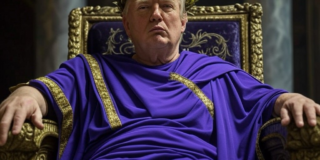Earlier this week Sydney City Council voted to include the term ‘invasion’ in the Preamble to the city’s vision for 2030. It’s even made news in India. It’s caused a stir within our own borders too:
“… All I can say is, so what? Caesar invaded Gaul mainly for political gain. While there, according to Plutarch, he killed 1 million Gauls and enslaved 1 million more, and now we rightfully regard Caesar as a brilliant man and outstanding commander.”
(Letters, Thomas Russell, SMH, 29 June 2011)
That may have been so, Mr Russel, but Rome didn’t aim to reconcile with those he subjugated. Now the discussion has shifted to inclusion of the word ‘invasion’ in the Australian Constitution.
Reconciliation, a Catholic sacrament that absolves one of sins confessed, made after a true and heartfelt act of contrition, followed by absolution of the soul; only then is a person reconciled with God.
I do not know how or who applied the term ‘reconciliation’ to Australian Indigenous affairs, but it is curious that a purely Western concept from one Christian sect has been applied to a dispute with a people who have been stripped of their beliefs and forced to assimilate a European way of life in order to survive. Yes, I know that many, many other cultures have been usurped and decimated over the centuries, but if you use that argument to brush of the ongoing concerns of abuses past and present against Indigenous Australians and speak of reconciliation in the same breath, then I see you as a hypocrite. No mincing words here. Learn the meaning the of the word and its origins before you start ranting about how Aboriginal people need to stop whingeing and move on with their lives. I don’t care which side of the debate you are on I and I don’t care whether you are black white or brown. For the record, I have no Indigenous blood that I am aware of … but then, some people fear the stigma associated with such genealogy and never tell their family, but that’s another story.
The Apology to the Stolen Generations was a momentous event in the growth of Australia as a nation. It acknowledged the act of separating children from their families and the destruction that it caused. It did not make mention of the arrival and settlement of the first colonialists and it made no mention of what many Indigenous people believe was an invasion. The first two steps in the process of reconciliation were made by Prime Kevin Rudd, raised as a Catholic but attending Anglican church services, in his Apology. The third step, absolution, can only come from God – and no, I am not equating Indigenous Australians to God. However, a true and heartfelt act of contrition must generally be demonstrated by significant attempts to change the attitudes that led to the sin or behaviours that continue to perpetuate harm to another person. At the time the Apology was made, the Northern Territory Emergency Response Act (NTERA), instigated by a populist, vote seeking Liberal Howard government, but with largely bipartisan support by a silent Labor Opposition. In fact, former Chief Justice Alastair Nicholson commented about John Howard and Mal Brough that:
“Unfortunately they knew the bulk of the Australian people well and in particular that their egalitarianism did not extend to black Australians. Like the asylum seekers they were not people at all, but rather beings ‘out there’ who needed to be controlled and made to conform.”
(The Failure of the Rudd Government’s Aboriginal Policy, 29 March 2010)
That quietude on the part of the Labor Party led by Kevin Rudd at the time can only be viewed as complicity. The delays in reinstating the Racial Discrimination Act in the Northern Territory and the questionable manner in which it was re-established as argued by Alastair Nicholson cannot be viewed as demonstrable of a true act of contrition. The lack of consultation with Indigenous people and the reluctance of the state and federal governments to compensate those families that have suffered abuse due to discriminatory practices is further evidence of the rhetoric in the Reconciliation debate. This of course, touches upon the other definition of reconciliation, taken from accounting, in which reconciliation is the act rather than the outcome of a process such as the Catholic sacrament. If you prefer this definition instead of the religious context then it can hardly be said that ‘the books’ of the Indigenous Australians and those of the settling colonists balance. The latter has transferred ownership of great swathes of the land into the Crown’s coffers and even those segments that are protected by Native Title are subject to the vagaries of a legal system that applies its protection variably to an applicant depending on his race. Just ask the Yindjibarndi.
Perhaps you think I am banging on simply about a term, but that term by its very definition is descriptive of what the governments and Indigenous of this nation profess to be trying to achieve. If we truly want a harmonious society, the melting which this nation so proudly touted when I was a child, we must call a spade a spade. The British colonists who settled Australia were not invited, they formed no treaty with the natives who were forced from their land and then enslaved in missions, paid paltry wage and stripped of their children. The assimilationist policies of past governments form the basis of the destruction of culture to create a homogenous society that would be easier to govern and ignore the practices of those not of European upbringing. These are the hallmarks of invasion. If you don’t want to include the word in official accounts of the settlement of this country, then you are not really trying to effect any form of reconciliation because you are refusing to admit to the ‘sin’. Choose another term other than reconciliation to bridge the cultural divide between Australia’s Aborigines and the descendants of the colonists.


